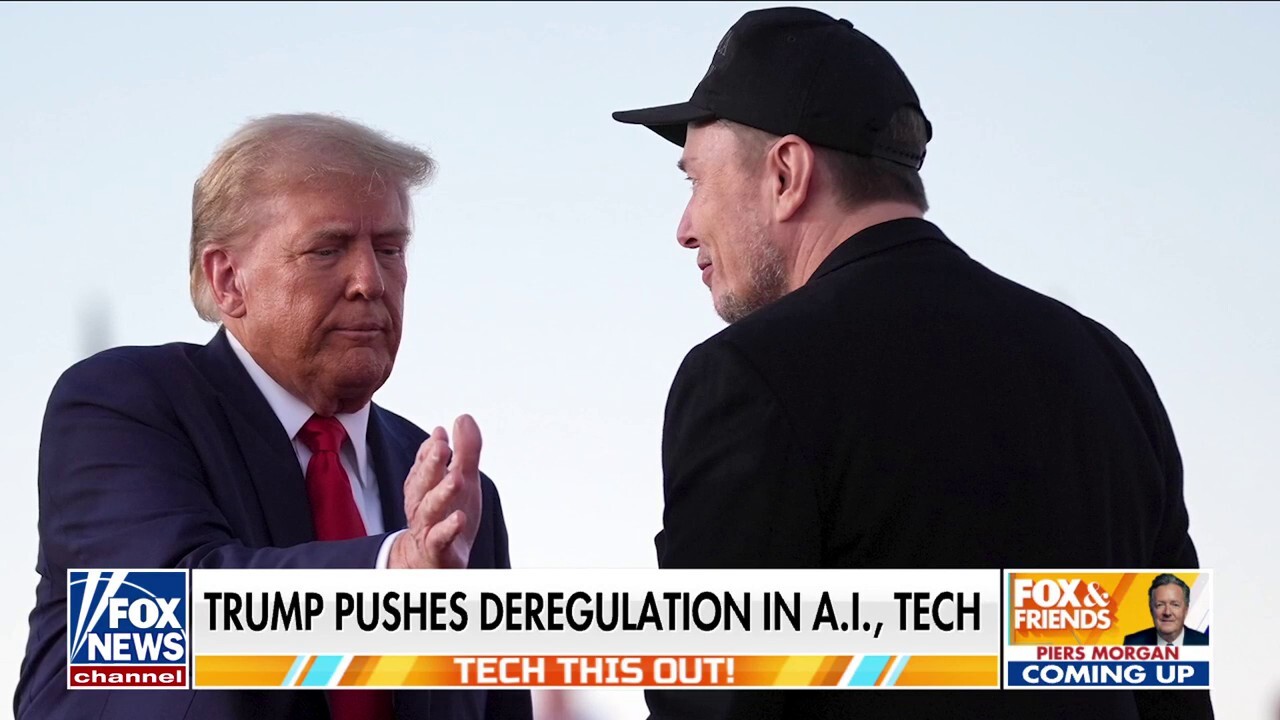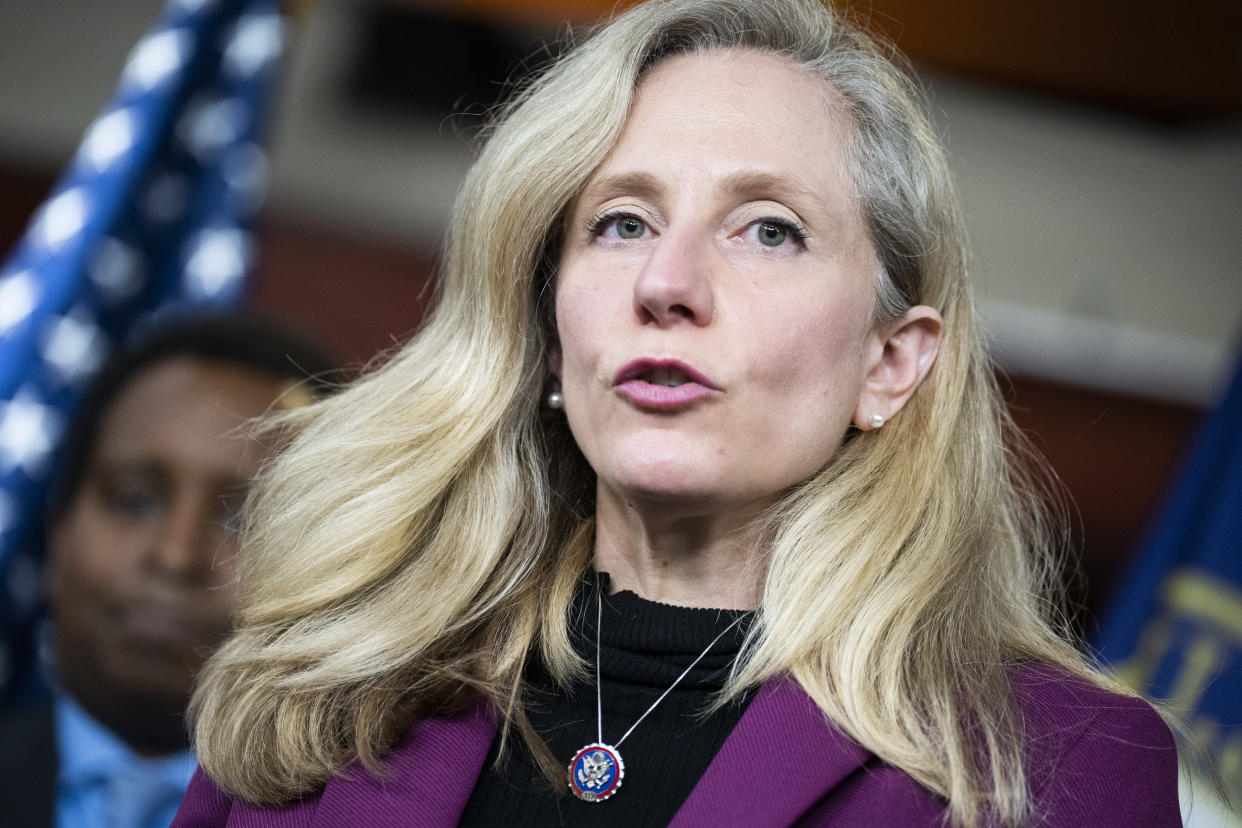Trump Administration's Pressure Campaign Against Europe's AI Regulations

Table of Contents
Trade Disputes as Leverage
The Trump administration frequently used trade disputes as leverage to pressure the EU to reconsider its AI regulatory framework. This tactic, characterized by the imposition of tariffs and the threat of trade wars, aimed to create economic pressure points to force concessions on AI-related policies.
- Examples of specific trade disputes and their connection to AI regulations: While no direct, explicit link was ever publicly drawn between specific tariffs (like those on steel and aluminum) and AI regulations, the overall climate of trade tension undoubtedly created an environment where discussions about AI regulation were held under a shadow of economic coercion. The threat of further trade action implicitly hung over negotiations.
- Statements from US officials linking trade concessions to AI regulatory changes: Although no direct statements explicitly linked specific trade concessions to changes in EU AI regulations, the administration's rhetoric often emphasized the importance of a "level playing field" in the global technology market, implying that differing regulatory approaches were a trade barrier. This subtle messaging aimed to create the desired pressure without explicit tying of issues.
- Analysis of the effectiveness of this pressure tactic: The effectiveness of this tactic is debatable. While it may have created a climate of uncertainty, it’s unclear whether it directly influenced the substance of EU AI regulations. The EU, driven by its own priorities regarding data protection and ethical AI, largely proceeded independently.
Regulatory Differences and Allegations of Unfair Competition
A central argument employed by the Trump administration was that the EU's stricter AI regulations, particularly concerning data privacy (GDPR), created an uneven playing field, disadvantaging US companies.
- Specific examples of regulations highlighted as problematic by the US: The GDPR, with its stringent data protection requirements, was frequently cited as an example of a regulation creating an unfair competitive disadvantage for US tech firms. Concerns were also raised about potential regulatory burdens hindering innovation.
- Counterarguments from the EU perspective on data protection and ethical AI: The EU consistently argued that its emphasis on data protection and ethical AI was not intended to stifle innovation but to promote responsible technological development. They viewed robust data protection as a fundamental right, not an impediment to competition.
- Analysis of the validity of the “unfair competition” claim: The validity of the "unfair competition" claim is a complex issue. While stricter regulations may impose costs on businesses, they also aim to protect consumers and promote societal well-being. The EU's approach reflects a different prioritization of values compared to the US approach.
Lobbying and Diplomatic Pressure
In addition to trade disputes, the Trump administration employed significant lobbying and diplomatic pressure to influence EU AI policy.
- Examples of lobbying groups and their activities: US tech giants and industry associations engaged in extensive lobbying efforts within the EU, aiming to shape the regulatory landscape to their advantage. This included direct lobbying of EU officials and policymakers, as well as the dissemination of information designed to influence public opinion.
- Analysis of the effectiveness of lobbying efforts: The effectiveness of this lobbying is difficult to quantify. While the lobbying contributed to the overall discourse, the final shape of EU AI regulations suggests that it wasn't entirely successful in fundamentally altering the EU's approach.
- Discussion of diplomatic channels used to exert pressure: Diplomatic channels were used to convey US concerns regarding EU regulations. High-level meetings and official communications between US and EU officials provided platforms for expressing dissatisfaction and pushing for regulatory changes.
Impact on Transatlantic Cooperation on AI
The Trump administration's pressure campaign had a significant impact on transatlantic cooperation in AI.
- Effects on joint research initiatives: The strained relationship created an atmosphere of distrust, potentially hindering future collaborations on AI research and development projects.
- Impact on the development of global AI standards: The divergent approaches between the US and EU created challenges for developing internationally harmonized AI standards, as consensus was difficult to achieve in such a tense political environment.
- Long-term implications for the transatlantic relationship: The long-term consequences of the Trump administration’s approach remain to be seen. It has undoubtedly created challenges to trust and cooperation on AI issues, requiring significant effort to rebuild collaborative partnerships.
Conclusion
This article has explored the multifaceted pressure campaign waged by the Trump administration against the EU's developing AI regulations. We've examined the use of trade disputes, highlighted concerns over regulatory differences, and analyzed the role of lobbying and diplomatic pressure. The impact on transatlantic cooperation remains a significant concern. Understanding the Trump administration's pressure on EU AI regulations is crucial for navigating the complex geopolitical landscape of AI development. Further research into the long-term effects of this campaign and the ongoing evolution of AI governance is essential. Continue exploring the complexities of the Trump Administration's pressure on EU AI regulations to stay informed about the future of international AI policy.

Featured Posts
-
 Ftc Launches Probe Into Open Ai And Chat Gpt Key Questions Answered
Apr 26, 2025
Ftc Launches Probe Into Open Ai And Chat Gpt Key Questions Answered
Apr 26, 2025 -
 Unlocking Potential The Value Of Middle Management In Modern Organizations
Apr 26, 2025
Unlocking Potential The Value Of Middle Management In Modern Organizations
Apr 26, 2025 -
 The American Battleground A High Stakes Fight Against A Billionaire
Apr 26, 2025
The American Battleground A High Stakes Fight Against A Billionaire
Apr 26, 2025 -
 Analysis Trumps Comments On Banning Congressional Stock Trades In Time Interview
Apr 26, 2025
Analysis Trumps Comments On Banning Congressional Stock Trades In Time Interview
Apr 26, 2025 -
 Thursday Night Football Nfl Drafts First Round Begins In Green Bay
Apr 26, 2025
Thursday Night Football Nfl Drafts First Round Begins In Green Bay
Apr 26, 2025
